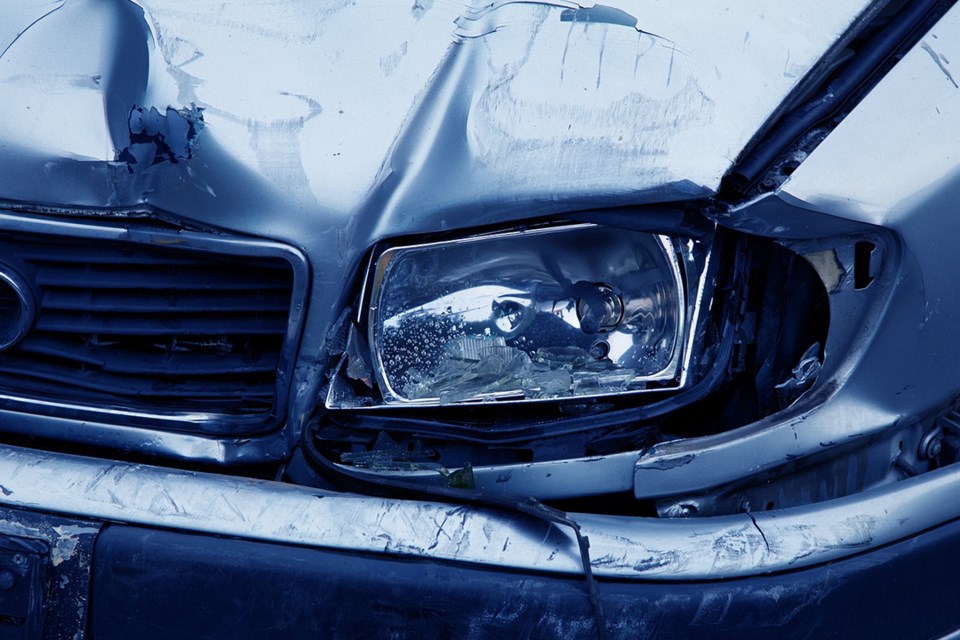SASKATCHEWAN - There has been a dramatic increase in fatal collisions in the province in the last few months and this has Saskatchewan RCMP concerned. In 2023 to date, there have been 58 fatal collisions in the Sask. RCMP jurisdiction, with 26 of them since Sept. 1.
Since Sept. 1 to Oct. 25 alone, there has been a fatal collision on average every 2.5 days. Over the past two months, 22 fatal collisions resulted in 26 deaths (14 drivers, nine passengers and three pedestrians).
“This is a dramatic increase from the 36 fatal collisions and 38 deaths from Jan. 1 to Aug. 31, 2023,” said Superintendent Grant St. Germaine, officer in charge of Saskatchewan RCMP Traffic Services.
“The fatal collisions geographically occurred all throughout the province. There is no one ‘hot spot’ or mitigating factor, making it challenging to provide a specific overall contributing cause.”
No one wants to deliver a next of kin notification
“Every traffic fatality is a tragedy and our thoughts are with everyone who’s had a loved one die on Saskatchewan roads,” said Supt. St. Germaine. “The impact is great on our police officers as well, responding to and investigating fatal collisions.
“No one wants to, nor can anything prepare you for, delivering a next of kin notification. Our officers are not the only ones on scene – there are emergency medical personnel and firefighters, who may also be local volunteers, as well as tow truck drivers, among others. Recognizing there are a multitude of factors related to fatal collisions, our message is to please drive safe on our roads. We want everyone to get home safe,” said Supt. St. Germaine.
Overall fatal collisions in Saskatchewan RCMP jurisdiction
In 2022, there were 65 fatal collisions with 79 deaths as a result. In 2021, the number increased to 73 fatal collisions with 79 deaths.
Note: numbers don’t include fatal collisions which occurred on private property, in other Saskatchewan police service jurisdictions, off public road surfaces and those related to medical emergencies. This is consistent with statistics provided to SGI for reporting purposes.
What are the causes?
There may be multiple causes/factors associated to one fatal collision. This could include a single factor, such as alcohol impairment or double, triple or even quadruple additional factors such as speed, alcohol or/and drug impairment, seatbelt use, medical emergency, wildlife involvement, among others.
Seventeen impairment investigations
Driver impairment is considered a cause or factor in 17 out of the 58 fatal collisions in 2023. Of these, four drivers were charged or a charge was recommended for impaired operation of a motor vehicle – three involving alcohol and one involving both drug and alcohol. Eight drivers died, with four of these investigations involving drug impairment. Five collisions remain under investigation. Multiple fatal collision investigations are still ongoing.
More than 13,000 kilometers travelled by collision re-constructionists since Sept. 1
Fatal collision investigations are complex and the Saskatchewan RCMP has five full-time and five part-time collision re-constructionists who are highly skilled in this area. At any one time there are two re-constructionists on-call – one in the north half of the province and one in the south - ready to respond at all times and support our RCMP detachments.
“A rough calculation of the number of kilometres our re-constructionists travelled in the past two months to investigate fatal collisions is roughly more than 13,000 kilometres,” said Sgt. Jeff Burnett, Saskatchewan RCMP Collision Reconstruction.
“To put things in perspective, the furthest travel time for one of our re-constructionists was 626 kilometres one-way to conduct an on-scene investigation and, in contrast, another was 28 kilometres. We may be battling adverse weather just to get to a scene – snow, rain, icy roads and more. After we arrive, it generally takes four to six hours to gather evidence, with the time dramatically increasing based on investigational complexity. This can mean road closures last for many hours for critical scene processing.”
A collision reconstruction investigation takes at least several months or sometimes more, factoring in wait times for results of examinations, such as toxicology, in addition to extensive analysis.
Most investigations from between Sept. 1, 2023 to date are not yet complete and some investigations may never result in charges, say RCMP.
Don't count on social media to deliver your local news to you.
here to bookmark SASKTODAY.ca's Crime, Cops and Court section.




